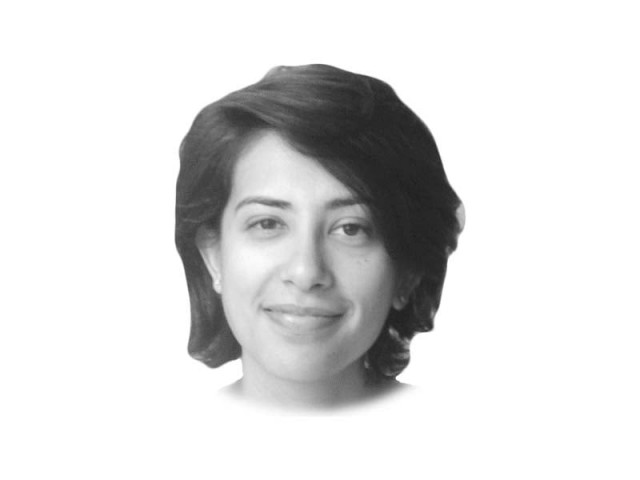That radical idea: a woman’s body belongs to her
Ground reality reveals deep rooted patriarchy that has taken hold of both formal state institutions and informal ones

One would think it is simple — one’s body belongs to oneself. The reality is that a woman’s body does not belong entirely to her. It belongs to the state, family, religious institutions and ideology. Globally, controlling a woman’s body is one of the tools used to maintain the deeply entrenched patriarchal status quo. For centuries, this is how it has been regardless of the advancement societies make. That simple idea then that a woman’s body belongs to her is in fact really, even in this day and age, a radical one.
Recent examples around the world show that very advanced societies, mostly with strong religious undertones, are still coming to terms with bodily autonomy and are unable to tackle harmful cultural practices and the rising level of violence against women and girls. Recently, Turkey saw large protests as its government attempted to withdraw from the Istanbul Convention (a treaty to combat violence against women). In Mexico, women’s rights organisations’ funding is being cut while cases of violence against women are on the rise. Poland has seen huge protests against a conservative government attempting to make laws on women’s right to abortion even stricter. With regard to sexual and reproductive health rights, America, Pakistan and Poland are among the countries that have attempted to eliminate the word ‘sexual’ in official international forums. America is also pushing for the use of the words “unsafe abortion” — attempting to denote all abortions as unsafe.
Before one thinks that there is no room for such a debate in Pakistan, let’s look at the figures. Though no official figures on all forms of violence against women are available, the Pakistan Demographic Health Survey (PDHS) reveals that in the last 12 months, 28% of women have faced some form of physical violence since the age of 15 and 34% of married women have faced some form of spousal violence. Child brides will be more vulnerable to violence and coercion. It is safe to say that domestic violence, “honour” crimes, rape and harassment are underreported. And practices such as forced conversions, forced and early marriages, and depriving women of property are widely carried out without any official acknowledgement or redress.
Only 26% of women use modern contraceptives and 17% of women have an unmet need for family planning. One reason for low contraceptive use is because religious lobbies in Pakistan have been successful in portraying sexual and reproductive health rights (SRHR) as against religious tenants. Yet, even religiously orthodox countries have achieved better results in addressing these issues. Pakistan stands where Saudi Arabia stood in 1996 in terms of the use of contraceptives. Ironically, the high unmet demand for contraceptives among women is reflected in the very high number of abortions: it is estimated that 2.2 million abortions take place in Pakistan every year.
It now seems that quoting constitutional guarantees of equality, national laws, international best practices and Pakistan’s commitments at the international stage are merely academic exercises. The ground reality reveals a deep rooted patriarchy that has taken hold of both formal state institutions and informal ones such as the institution of the family. Unsaid rules allow Pakistani society to offer women a pedestal place, even if only in words, with this place rapidly withdrawn should a woman behave outside expected social conventions. This rule applies widely in formal settings, including courtrooms and written judgments, formal places of work and in the home. In rape cases, despite the progressive amendments made in 2016 to the rape law, it is regularly brought up in court by defence lawyers (and often accepted by judges) that women behaved outside the perimeter of the unsaid, yet well-established, norms, to which a woman is expected to adhere. Even in family cases for custody of children, arguments made by the father include how a mother has deviated from expected social norms (smoking, going out with friends are some examples given in formal court proceedings) and hence is unfit to maintain custody of the children.
That fundamental belief that human beings have agency over themselves becomes a radical idea when applied to women. The state and society are colluding to ensure that women and their choices are policed at home, in school and at work. This constant reinforcement has led to women lacking agency. And it is personal agency that underpins every fundamental right a human being has.
There are three important ingredients required to “de-radicalise” ideas as basic as a woman controlling her choices. Firstly, women must come together to form some common ground and make some minimum demands of the state. This can only be done through an honest collective of women from the left, progressive, liberal political and social divide. It cannot be the agenda of elite women or even elite women speaking on behalf of other women. It must be across socio-economic classes, provinces and religious groups. It is also of utmost importance that younger feminists align with the old guard of inspiring Pakistani feminists, who have made great strides for us, to ensure there is not a reinventing of the wheel, only a strengthening of it. Progressive movements like the Aurat March are emerging as vehicles for that dialogue and camaraderie much needed between women. Aurat March is strengthening what Women’s Action Forum started.
Secondly, male solidarity is important but not at the expense of maintaining and building camaraderie of, between and for women first. It is sometimes difficult to lose sight of this because such basic rights are being violated and these violations are not always based on gender alone — class, sect, race, among other binaries, play a significant role in who, when and how one is affected and the redress they are likely (or not) to receive. But let’s not lose sight for too long.
Thirdly, women’s movements in Pakistan must analyse and challenge both patriarchy and capitalism. In both the patriarchal family structure and the capitalist state, the basic premise is that of protecting and maintaining male interests. How do we counter that?
Published in The Express Tribune, September 12th, 2020.
Like Opinion & Editorial on Facebook, follow @ETOpEd on Twitter to receive all updates on all our daily pieces.














COMMENTS
Comments are moderated and generally will be posted if they are on-topic and not abusive.
For more information, please see our Comments FAQ